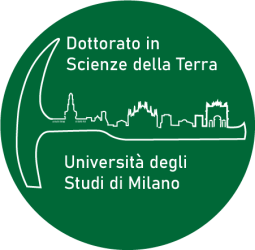Earth science is one of the broadest and most interdisciplinary scientific fields, in particular within the ERC PE (Physical Sciences and Engineering) research domain. The main focus is the quantification, understanding, modelling and prediction of the behavior/properties of the Earth System, characterized by complex interactions among the Geosphere, the Biosphere, the Atmosphere, and the Hydrosphere through flows of mass, energy, and life. Interactions between these components are archived in the geological record that can be decoded to:
- reconstruct the development and evolution of our planet by combining observations, experiments and modelling;
- define natural resources and their sustainable exploitation and use (oil, gas, mineral commodities, water);
- assess geological hazards (earthquakes, floods, landslides);
- design of engineering geological works and facilities; e) implement environmental remediation technologies;
- develop exploitation of raw materials for industrial applications;
- preserve our cultural heritage;
- gauge forensic applications.
The geoscience perspective of the functioning of the overall behavior of the Earth system includes research of dynamic processes operating both on the surface and deep in the inner Earth, their impact on ecosystems and human activity, and, vice versa, present and future anthropogenic impact on the environment. Research interests and activities in the Department of Earth Sciences in Milan are broad and far-reaching, encompassing a wide range of temporal and spatial scales. Our Graduate Program offers students the opportunity to learn about and independently investigate a large variety of basic, applied, traditional, cutting-edge and cross-disciplinary geoscience areas.
The Tutors will guide research leading to doctoral degrees in a range of geoscience topics, encompassing Geological Mapping, Structural Geology, Tectonics, Solid Earth Geophysics, Numerical Modeling, Applied Geophysics, Mineralogy, Experimental Petrology, Applied Mineralogy and Petrography, Mining Geology, Integrated Stratigraphy and Chronostratigraphy, Sedimentary and Environmental Geology, Soil System Sciences, Geomorphology, Glaciology, Paleoclimatology, Paleoecology and Paleoceanography, Engineering Geology, Rock Mechanics, Hydrology and Hydrogeology.
Learning objectives
Within the PhD Program in Earth Sciences it is intended to develop hard & soft skills which can be immediately used professionally through continuously updated and innovative training. The research themes carried out are highly topical and of considerable scope internationally, often in close collaboration with some of the best international research institutions. The training includes the attendance of seminars, participation in conferences, cycles of lectures and specific schools for the Doctorate, workshops (national and international) and other activities (stages or theses) carried out in companies and external bodies, including international ones, aimed at integrating individual preparation.
